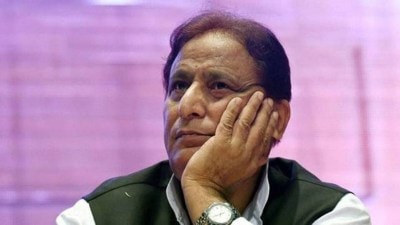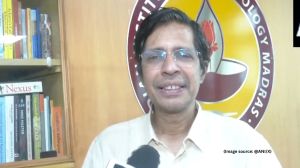The forest and its folk
The Government, in its wisdom, is finally working out a compromise to help reconcile the twin interests of forests and forest-dwelling peopl...

The Government, in its wisdom, is finally working out a compromise to help reconcile the twin interests of forests and forest-dwelling people. Finally, the competent ministry for forestry legislation — the Ministry of Environment and Forests (MoEF) — has drafted a ‘‘Forest Rights (Recognition and Vesting) Bill,’’ which has been circulated among the agencies of the government. And what an improvement it is!
This MoEF-sponsored Bill sets up the process of recognising and vesting the legitimate rights of forest dwellers and forest-dependent communities. These rights are now offered to all forest-dwelling communities, and include rights to land and minor forest produce. There is no limitation by size of land-holding. The cutoff of 1980, when the Forest Conservation Act was passed, is maintained, without scope for future (politically-motivated) entitlements.
There is no ambiguity or dilution of the sole responsibility of the state Forest Departments (FDs) in continuing the custodial care of the country’s forests. Local communities may adopt their own laws for conservation if they wish, but this is not obliged on them by conferring rights to their own lands! Duplication of responsibility between local communities and the FDs is avoided. A new system of fines is avoided when this is already articulated by the Wildlife (Protection) Act. The FDs and forest communities are encouraged to expand Joint Forest Management, which has now been adopted by 28 states, and comprises 99,000 Joint Forest Management Committees for 75,000 forest-fringe villages.
In fact, the new Bill is a necessary and due successor to the Forest Conservation Act, since various states governments and their Revenue Departments did not go through with comprehensive forest settlements. Where there was political will, progress was made in forest settlement. Legal rights to 3.67 lakh ha. of forest lands in 8 states was granted. About 510 forest villages (out of 2,690) were converted into revenue villages in four states. However, the process, managed by Revenue and not Forest officials, was tardy and not uniform. The new Bill takes forest legislation further by setting in motion the conclusion of a one-time, historical process of settlement of rights.
Traditional forest-dwellers and encroachers are currently in possession of 13,433 sqkm of forest land, or 1.4% of the country’s forest area (records upto March 2004). It is not clear how much would pre-date the 1980 cutoff, and what the split between the two categories of possession is. But to understand the scale of the land settlement envisioned by this Bill, if even 20% of this land was eventually settled, valuing the biodiversity benefit foregone at Rs. 7.5 lakh/ha. (the average NPV of benefit from forest land, as per the recent Supreme Court judgement in the Godavarman case), this would amount to a whopping Rs. 20,000 Crore! The sums involved, the irreversibility of environmental change, the vulnerability of the people involved, the intangible benefits of forest land — all this requires we respect the complexity for this process, and establish the lawfulness of the task at hand.
This is a task that ideally should be beyond ideology and rhetoric, frankly recognizing the successes and failures of our tribal, forest, and wildlife management. Future generations won’t forgive us if we fail to take this opportunity to craft a viable compromise. By means of this Bill, tribal and non-tribal forest dwellers with legitimate rights existing before 1980, ascertainable by their own Village, Block and District-level Committees, will gain heritable rights to their lands. Communities will also gain access to harvest Minor Forest Produce (MFP), while following approved forest working plans. Encroachers and settlers after 1980 would be resettled outside forest areas. Here the Centre can pitch in to help states with resettlement schemes that provide succour while not encouraging further encroachment on diminishing forest lands.
The forest area left after this process would be more-or-less inviolate, and Protected Areas are in any case carved out of this process. The land grab which environmentalists feared is avoided, justice to genuine claimants for land and minor forest produce rights is ensured, and inter-community discrimination avoided. The new and improved Bill will neither split forest communities or conservation and welfare advocates, nor is it likely to attract legal censure. Being drafted by the MoEF, since it concerns forests and all forest communities (not just tribals), it is in conformity with existing laws and initiatives of the MoEF.
Those who care about the future of Indian forests should support the new Bill, and the belated but sincere initiative of the Government to reconcile conflicting interests. For those who are concerned with the welfare of forest-dwelling or remote communities, I still maintain, this initiative isn’t enough, that livelihood is more important than entitlement to marginal land. Many forest-dwellers would be willing to resettle outside forest locations if it brought them prosperity. This would avoid the fragmentation of forests, while offering development to those in remote locations. The Ministry of Tribal Affairs and NGOs could take a lead in ensuring that resettlement would be voluntary, generous and participatory (as at Bhadra, Melghat, Kuno-Palpur, Panna, Kanha, Nagarhole, Corbett, and Chilla).
The MoEF Bill, brought out in conformity with existing forest and wildlife laws and processes, aims to harmonize the state’s duties to protect forests and secure justice for its forest-dwelling people. If the proponents of tribal and forest-community welfare, and the administrators and politicians in the states which have been backing the previous legislation, are sincere, India can secure forest and forest-dweller interests alike by means of this new Bill.
The writer is an independent infrastructure consultant. Email:himraj.dang@touchtelindia.net
Photos



- 01
- 02
- 03
- 04
- 05




























